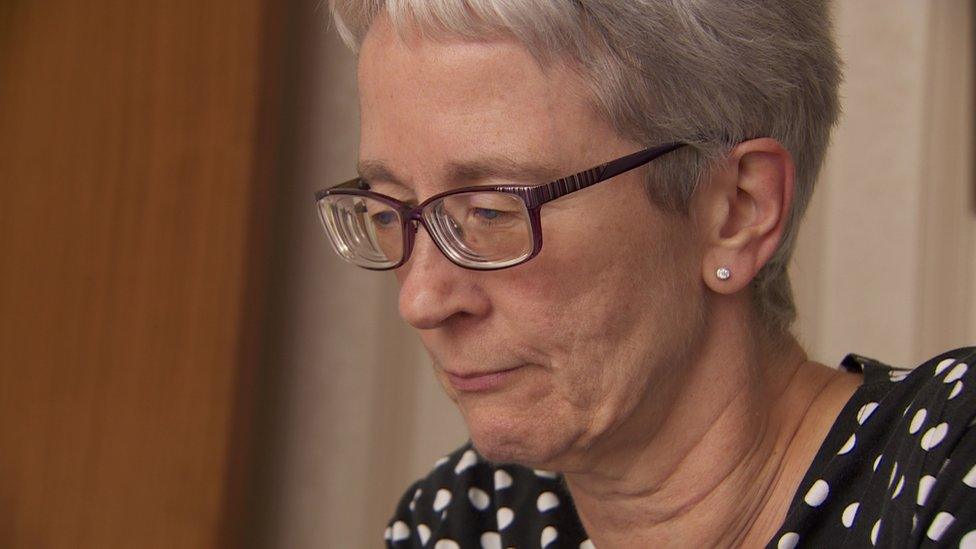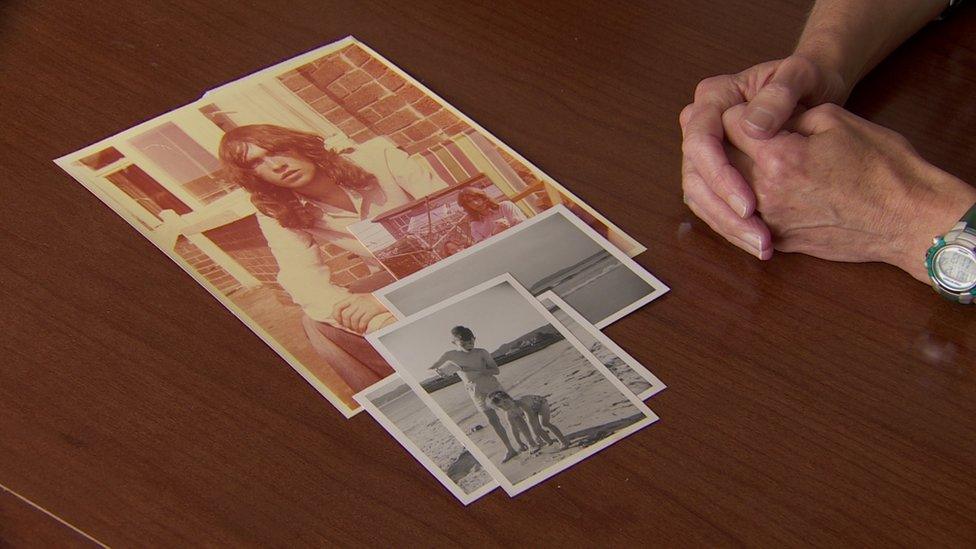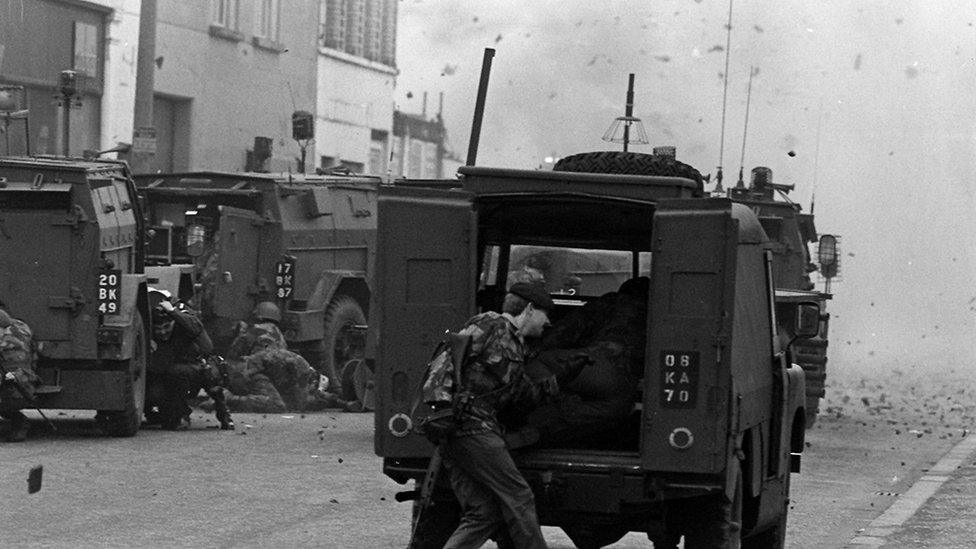Troubles legacy: 'Families can not draw a line under it'
- Published
Troubles legacy: ‘I don’t need to know who shot my brother to heal’
Mary Kiely was 11 when her mother and a priest came into her bedroom in the middle of the night to tell her that her brother had been killed.
Gerard Kiely was an 18-year-old student at Queen's University.
He was shot dead with his friend Kevin Ballentine as they left Mass in St Brigid's Church in south Belfast in 1975.
"It was around two o'clock in the morning and the priest came in with my mum by his side and told me that Gerard had been killed," she said.
"And I think I remember saying 'you have to be very strong'."
"My memories of Gerard are few but precious," she said. "He was eight years older than me but I worshipped the ground he walked on."
Ms Kiely said her "one big regret" is choosing not to go to the funeral. "I watched it on the telly with my granda because of course all the Troubles funerals were on tv."
'I cried a lot'
Mary has spent her career in England as a palliative care doctor and now feels she has time to reflect on what happened.
She has rarely spoken publicly about Gerard's death: "It was so painful and at the time I cried a lot.
"But I changed schools that summer and then I didn't talk about it and it was less painful. It was easier for me to deny it so if people asked me if I had any brothers or sisters I just said no.
"I look back on that and feel a bit guilty that I denied his existence but it was easier to cope with that."

Mary Kiely has never spoken publicly before about her brother's shooting during the Troubles
A few years later when Mary was 14 she started to suffer from severe headaches and nightmares and then she developed a fever.
"I was taken to Forster Green Hospital because they thought I had meningitis and they did all these tests and then this doctor asked my mum and dad was there anything else and they told her about Gerard.
"She came in and sat down and said 'it's terrible what happened to your brother, tell me about it' and I talked and talked and talked. It was the first time anyone had asked me about him in my life."
'Getting the story out'
Controversial Troubles legacy legislation, which had its second reading in the House of Lords on Wednesday, has given Ms Kiely food for thought.
A central element has involved immunity from prosecution for those who co-operate with investigations run by a new information recovery body.
Lord Caine said new amendments would include "a more robust process" around immunity from prosecution.
No one was ever convicted of Gerard's murder.
"I've worked in palliative medicine all my life and even when someone dies they live on in you and how you do that is really important," Ms Kiely explained.
"Some people want retribution but I don't feel the need to know that to recover and heal, but my experience is unique to me.
"There will be others whose truth was hidden or twisted a little and I don't know how we handle that but I think it's right that their stories are told and people have the chance to get some answers. Especially for the less well-known stories.
"I don't think finding out the answers is the most important. It's the process of getting the story out and not being judged."

Mary Kiely said her mother started a victims' relatives group after Gerard was killed
Ms Kiely, however, told BBC News NI that language is important and she thinks government descriptions of drawing a line under the past is unhelpful.
"The families will never be able to draw a line under it," she said.
"They will never forget. There has to be recognition of that."
Ms Kiely believes her lack of bitterness towards Gerard's killers comes from her parents.
Her mother Maura started up a group of victims' relatives called The Cross Group after Gerard was killed.
She searched for other victims' families in newspapers and knocked on their doors.
"It was mostly women and there was no hierarchy and no judgement," Ms Kiely continued.
"They had people who had been killed by a whole cross section of people but it was just a social thing.
"I'm very proud of what she did and my dad was there quietly supporting in the background.
"And my mother always said she would prefer to be the mother of the victim not the killer.
"They taught me to cope with this trauma and I'm hugely indebted to them."
Related topics
- Published24 November 2022
